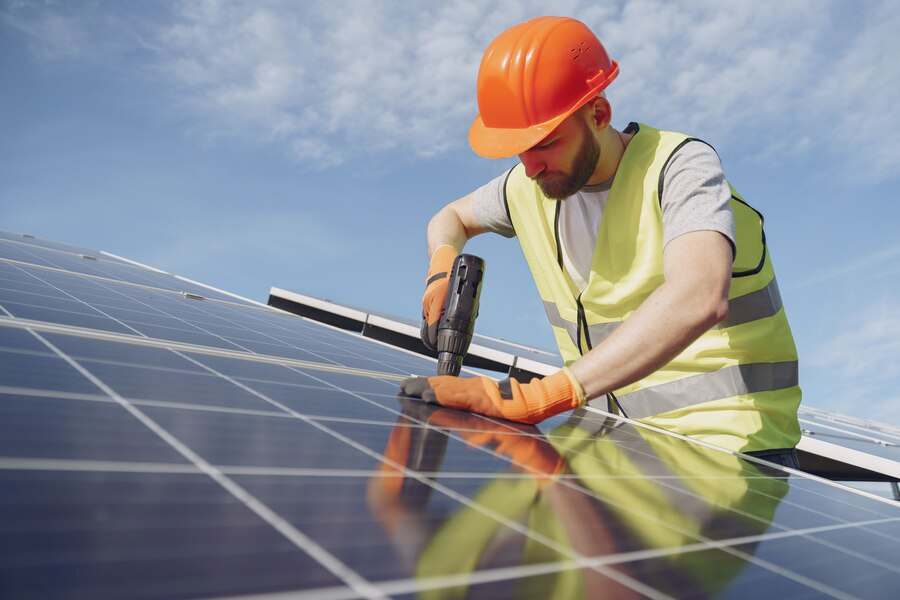Welcome to a new era of energy, where the power we harness is not only clean but sustainable. Renewable energy sources such as solar, wind, and hydroelectric power are no longer just buzzwords—they’re crucial elements for our survival and prosperity. This blog post will explore why renewable energy is the future and why it’s imperative for us to act now.
In this article, you’ll learn about the current state of renewable energy, its environmental and economic benefits, the challenges we face, and the solutions that could pave the way for a greener future. We’ll also look at how you, as eco-conscious consumers and sustainability enthusiasts, can play a pivotal role in this transition.
The Current State of Renewable Energy
Renewable energy has seen exponential growth over the last decade. As we stand on the cusp of a significant transformation, renewable energy installations are becoming more prevalent across the globe. According to recent studies, investments in these technologies have surged, driven by a growing awareness of the urgent need to combat climate change and reduce our reliance on fossil fuels.
Countries around the world are setting ambitious targets. Some increasingly turn to solar panels, wind turbines, and other innovative solutions, showcasing a collective move toward a cleaner energy footprint. This shift marks an exciting time in the energy sector, where innovation and sustainability go hand in hand. For instance, Germany aims to generate 80% of its electricity from renewables by 2030. Similarly, Costa Rica has already achieved nearly 100% renewable energy for its electricity needs, thanks to its abundant hydro
resources.
Successful projects like the Ivanpah Solar Power Facility in California and the Hornsea One Offshore Wind Farm in the UK exemplify the potential of renewable energy. Such initiatives showcase how renewable energy is not just feasible but highly effective.
Environmental and Economic Benefits of Renewable Energy
One of the most substantial benefits of renewable energy is its ability to reduce greenhouse gas emissions. Unlike fossil fuels, renewables produce little to no harmful pollutants. This cleaner energy reduces our carbon footprint, helping combat climate change and improve air quality.
The economic benefits are equally compelling. The renewable energy sector is a significant job creator. The International Renewable Energy Agency (IRENA) reports that renewable energy employed 11.5 million people globally in 2019. From engineers designing solar panels to technicians maintaining wind turbines, the industry offers diverse job opportunities.
Economic growth is another advantage. Investments in renewable energy projects stimulate local economies. They create a demand for materials, labour, and support services, generating a ripple effect that benefits various sectors.
Challenges in Adopting Renewable Energy
Despite its advantages, adopting renewable energy isn’t without challenges. Technological limitations can be a barrier. For example, energy storage remains a significant hurdle. While we’ve made strides in battery technology, current solutions can’t yet store large amounts of energy efficiently.
Policy and regulatory hurdles also pose challenges. Inconsistent policies and lack of incentives can discourage investments in renewable energy. Furthermore, many regulatory frameworks are still geared towards fossil fuels, making it difficult for renewables to compete on an even playing field.
Solutions and Innovations
Innovation is the key to overcoming these challenges. Breakthrough technologies like advanced energy storage systems and smart grids are paving the way for more efficient energy use. Companies like Tesla are making strides with their Powerwall battery system, which allows households to store solar energy for use during non-sunny hours. Furthermore, in the wind energy sector, tools like WindDeep wind farm performance software, can help in changing how wind farms operate by optimizing performance and reducing downtime. This can be done through advanced analytics and alarm system to make sure wind farms are running at peak efficiency, maximizing energy output and reducing maintenance costs.
Policy changes are equally vital. Countries that have implemented supportive policies, like feed-in tariffs and renewable energy credits, have seen significant growth in their renewable sectors. For instance, Denmark’s aggressive wind energy policies have helped it become a world leader in wind power.
Successful initiatives also highlight the importance of community involvement. Local renewable energy cooperatives, where communities invest in and benefit from renewable projects, are gaining traction and demonstrating the power of collective action.
The Role of Consumers in Driving Renewable Energy Adoption
Consumers hold immense power in driving renewable energy adoption. Simple actions like choosing a green energy provider or installing solar panels can make a significant impact. Businesses can also play a role by integrating renewable energy into their operations and encouraging sustainable practices among employees.
Consumer demand is a powerful force. When more people choose renewable energy, it signals to the market that there’s a growing preference for sustainable options. This demand can drive investments and innovations in the renewable energy sector.
Educating yourself and others about the benefits of renewable energy is another way to contribute. The more people understand the importance and feasibility of renewable energy, the faster we can transition to a cleaner future.
Looking to the Future
The future of renewable energy looks promising. According to BloombergNEF, renewable energy could supply 77% of global electricity by 2050. Innovations in technology and policy support will play crucial roles in achieving this target.
However, the urgency to act cannot be overstated. Climate change is accelerating, and the window for meaningful action is narrowing. Delaying the transition to renewable energy could result in irreversible damage to our planet.
Acting now means committing to renewable energy at all levels—individual, community, corporate, and governmental. It’s about making informed choices and advocating for policies that support a sustainable future.
Renewable energy is not just an option; it’s a necessity. It presents a viable path to addressing some of the most pressing environmental and economic challenges we face today. By adopting renewable energy, we can reduce greenhouse gas emissions, create jobs, and stimulate economic growth.
Now is the time to act. Whether you’re an individual, a business, or a policymaker, there are steps you can take to support renewable energy initiatives. Start by educating yourself and others, making sustainable choices, and advocating for supportive policies.
The power to secure a sustainable future lies in our hands. Let’s harness it today for a better tomorrow.




